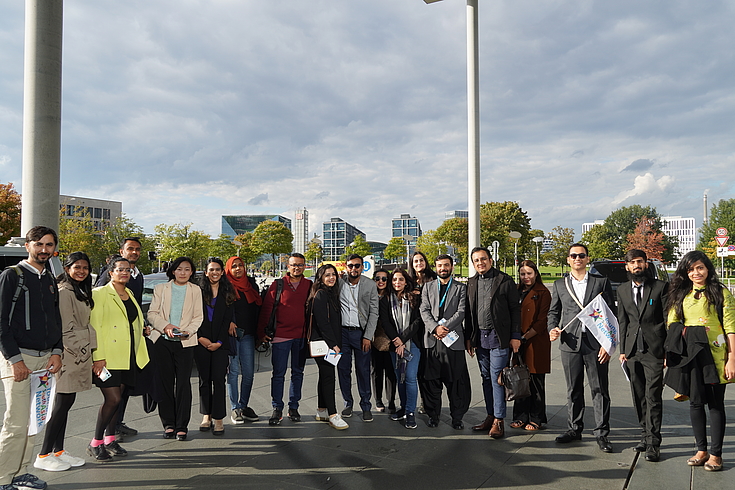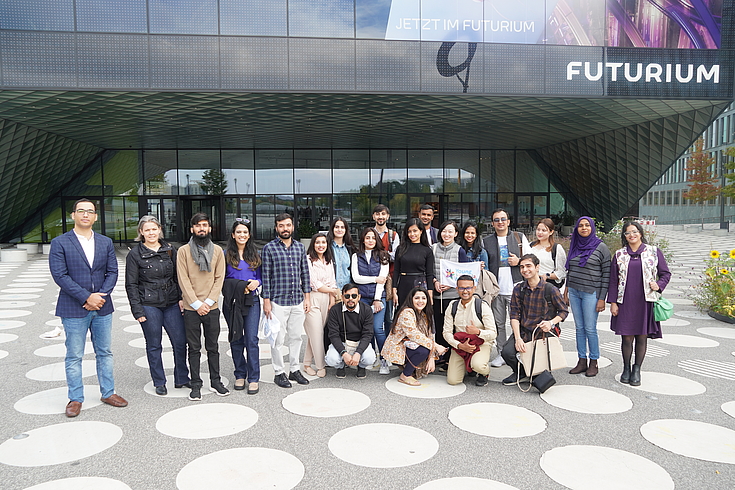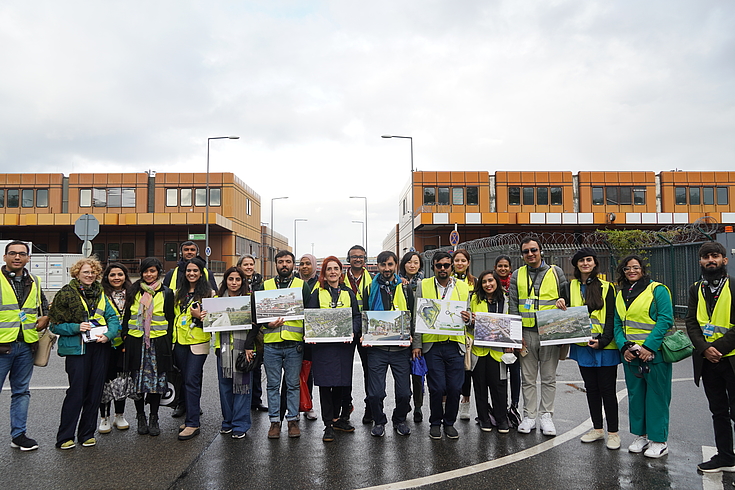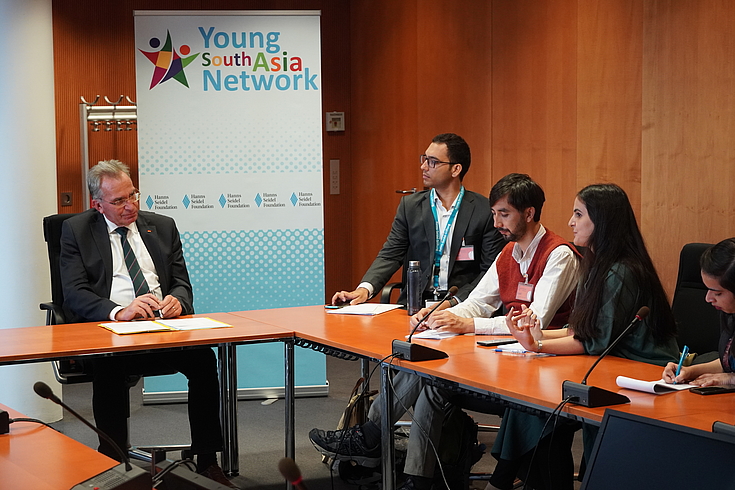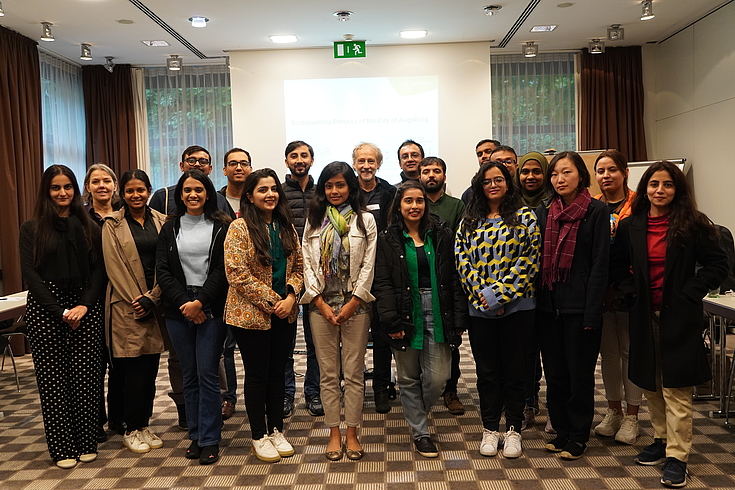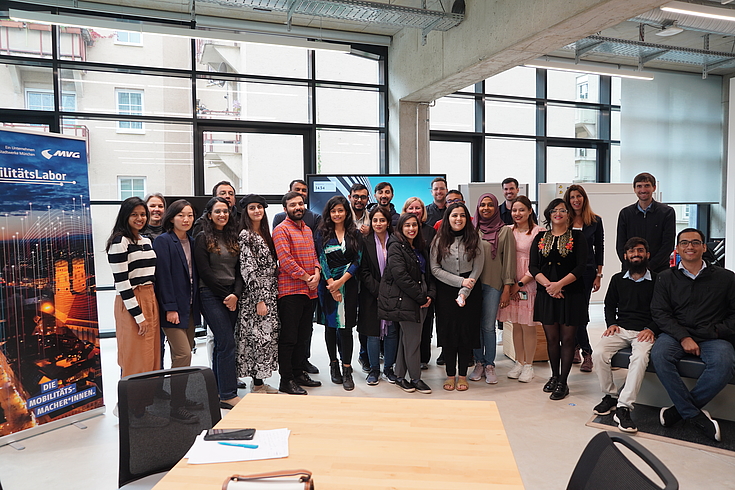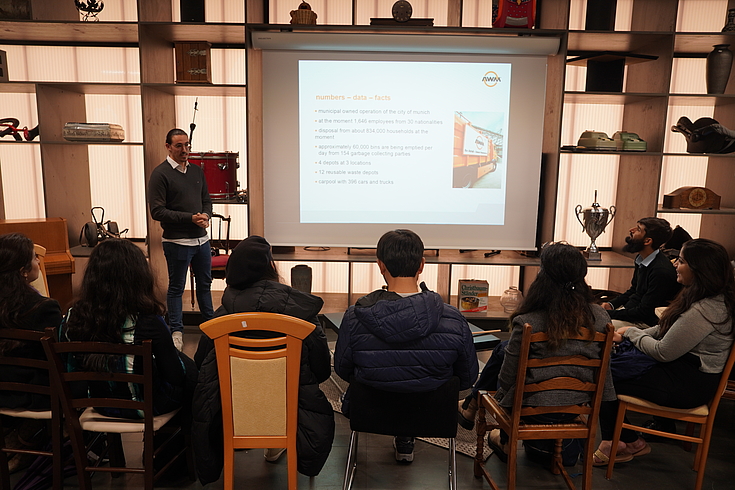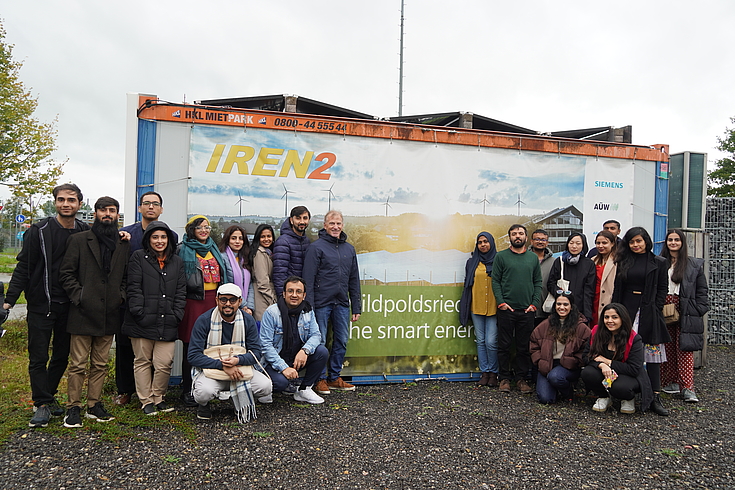YSAN Study Visit
Guided tour in Berlin
From September 24th to October 2nd, 2022, we organised a a study visit to Germany, which is renowned for its innovative approach to urban planning and sustainability. Our YSAN fellows gained invaluable insights into sustainable urban practices and led discussions with experts and policy makers in Berlin and multiple cities in Bavaria, Germany. The study visit included meetings, field visits and excursions to research centers, water and waste treatment plants, municipalities, sustainability offices and the German Parliament.
Visit to Futurium
In Berlin, the participants visited Futurium which showcases exhibitions around how we can discover and shape our common future at the intersection of Nature, Humans and Technology – from robotics to resilient infrastructure. Through a guided tour, they also explored the vibrant city of Berlin, including a visit to the EUREF Campus – a sustainable tech innovation hub which is making the sustainable future a reality through innovations, infrastructure and investments.
Visit to Berlin Tegel Airport
The participants also learnt about the Recirculation of reusable materials into utilization cycles to conserve limited natural resources at Berlin Municipal Cleaning Services. After the visit, a guided tour was planned at Berlin Tegel Airport to inform them about the architecture and redevelopment of this old airport to the city of the future.
Meeting with Mr. Paul Lehrieder
''Political will and efforts are important for successful polices and implementation of urban sustainability''. The meetings with Mr. Paul Lehrieder (MP, CSU and Member of German-South Asian Parliamentary Group) at Paul-Löbe-Haus and Dr. Anja Weißgerber (MP, CSU & Chairwoman of the Committee on the Environment, Nature Conservation and Nuclear Safety) at HSS Berlin office highlighted Germany's significant efforts towards a sustainable future and climate change mitigation, and the scope of partnership between South Asia and Germany to find solutions for the common challenges.
Meeting with Dr. Norbert Stamm
The next stop of the study visit was Augsburg. Dr. Norbert Stamm from Municipality Augsburg & Office for Sustainability shared his 25 years of experience, challenges, and success story of sustainability in Augsburg. He also highlighted the importance of Citizen Participation to promote sustainability at the local level. One of the highlights was ‘The Augsburg Water Management System’ - a UNESCO World Heritage Site, which has evolved over the centuries and provides sustainable energy to the city. The guided tour to this site gave us a glimpse of the water construction, waterpower, drinking water and Fountain art in Augsburg.
Visit to Munich Urban Colab
At the Technical University of Munich, the participants learnt about the sustainable solutions for resilient water systems. It was followed by the presentations at the Munich Urban Colab - where they gained isights into the technological and social innovation projects/ initiatives supported by the ‘City of Munich’ and ‘UnternehmerTUM’ - and Mobility Laboratory and Digital Mobility Hub, which ensures sustainable and cooperative development of mobility in Munich.
On the next day, we organised a closed-door session for the fellows to give a presentation on their key takeaways and learnings from the study visit, including the similarities and differences between their home countries and Germany regarding policies, implementation, best practices, and major challenges of urban sustainability.
Visit to Gebrauchtwarenkaufhaus Halle 2
A visit to the Second-hand shop (Gebrauchtwarenkaufhaus, Halle 2) of ‘The waste management corporation of Munich (Abfallwirtschaftsbetrieb München, AWM) showed us how Munich is on the way to becoming a Zero Waste City Munich and is developing a robust circular economy through the proper collection and management of household and commercial waste in and around Munich.
Visit to Wildpoldsried
The participants also travelled to Wildpoldsried (a municipality located in the district of Oberallgäu in Bavaria) from Augsburg by a bus. It is exemplary of the energy village which produces renewable energy from wind, sun, water, and biomass. As part of the cultural exposure, the participants experienced the Bavarian culture firsthand at the Oktoberfest (one of the world’s largest Volkfest) and through a visit to the Neuschwanstein Castle (one of the major tourist attractions in Germany).

